Solar energy is a clean, renewable, and sustainable source of power that has the potential to transform our homes, businesses, and communities. Solar panels are at the core of solar energy systems, which convert sunlight into electricity.
The solar panel cost depends on several factors, in the United States, the average cost of solar panels used in households is estimated at $2.94 per watt. For instance, a 5 kW system would cost around $11,000 (Green).
This guide will explore the cost of solar panels and associated expenses. We will also discuss ways to finance your solar panel system and methods to reduce overall costs.
The average cost of solar panels
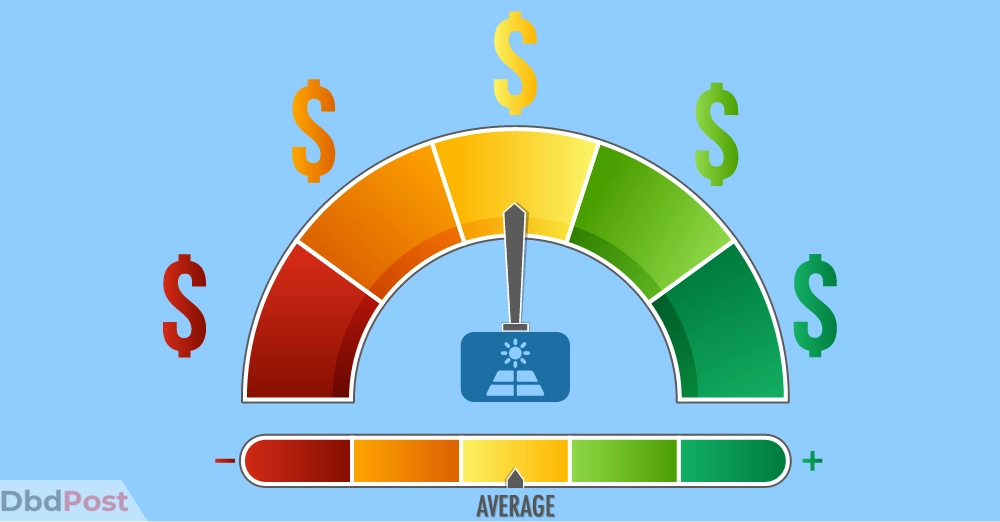
The cost of solar panels varies based on system size, panel type, and other factors. Switching to solar energy requires an initial investment in equipment and installation. Homeowners can expect long-term savings on electricity bills and a return on investment.
On average, solar panel systems cost approximately $2.94 per watt. A 5 kW system is the typical size used in residential homes in the US, with an estimated cost of around $11,000. [1]Green, “How Much Do Solar Panels Cost, … Continue reading
It’s important to note that you will also need to consider installation and maintenance expenses in addition to the panel cost.
The price of solar panels may vary depending on the brand and store, so it’s advisable to shop around and compare prices to secure the best deal for your solar panel system.
Cost of solar panels in the international market
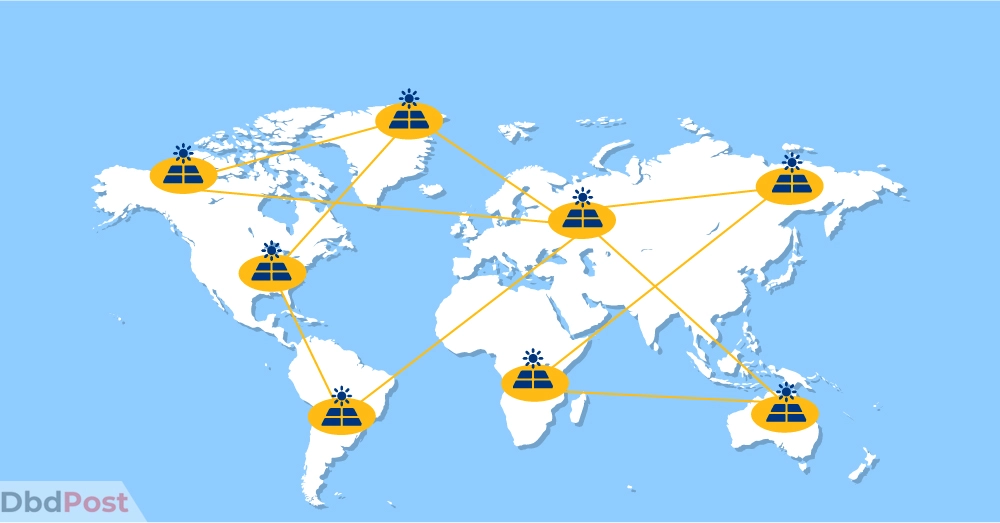
India has emerged as a significant solar power producer, surpassing countries like China and Italy. According to a report by IRENA, the price of solar panels for installing solar power projects in India was around $793 per kW.
In comparison, Canada witnessed rates as high as $2,427 per kW, while European countries enjoyed competitive prices, with Italy seeing rates as low as $870/kW (Financial Express).
This success story demonstrates the remarkable achievements that nations can attain by embracing renewable energy solutions.
Factors affecting solar panel cost
Several factors influence the cost of solar panels, including:
Solar panel type

The type of panel affects the overall cost. There are three main types of solar panels: monocrystalline, polycrystalline, and thin film.
Monocrystalline panels are generally more expensive but offer higher efficiency. On the other hand, thin-film solar cells are the least costly but have lower efficiency ratings.
Installation costs
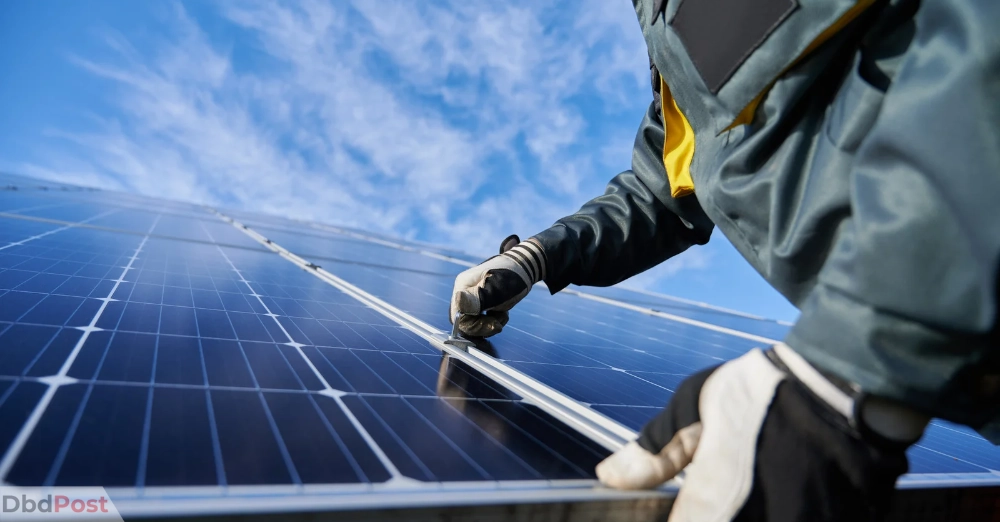
The cost of installation is another significant factor. To make informed decisions regarding solar installation, it’s crucial to understand the different costs involved.
Typically, solar panel installation costs can be divided into equipment, labor, and permits/fees. Equipment expenses encompass panels, wiring, mounting hardware, and inverters, while labor costs include installation and annual maintenance.
Additionally, different locations may have varying fees and permits for solar power installations, such as zone assessments and connection fees. Regardless of where you reside, it’s essential to be aware of these costs.
Government incentives
The federal solar energy credit provides an opportunity to save money on taxes. It allows individuals to recoup some of their solar system expenses when paying taxes.
The system must be installed and operational during the tax year to be eligible for this credit. The federal solar tax credit rate is 26% for solar PV systems installed in 2020 and 2021. [2] Energy, What is the federal solar tax credit, https://www.energy.gov/eere/solar/homeowners-guide-federal-tax-credit-solar-photovoltaics#:~:text=The%20federal%20residential,26%25%20tax%20credit.”
Financing options for solar panel cost
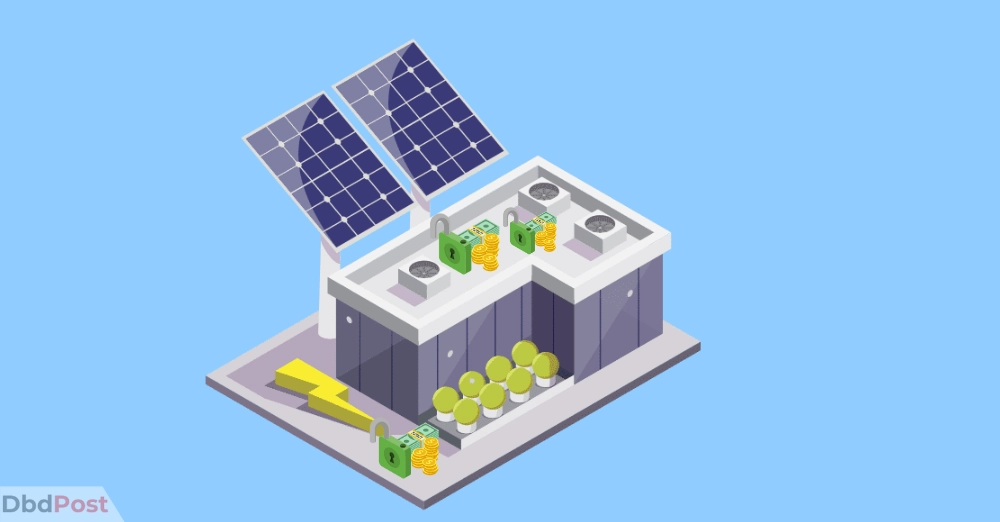
Multiple financing options are available for solar panel systems, including loans, leases, and power purchase agreements (PPAs).
Here is a breakdown of each option:
Solar loans
Solar loans are a good option for homeowners who can’t afford to make a large up-front payment. They allow for small monthly payments over a long period and require a good credit score to qualify for the best rates.
There are two types of solar loans: unsecured loans and secured loans. Unsecured loans do not require collateral, while secured loans are backed by collateral and have lower interest rates.
It’s important to review the loan terms, including the origination fee, repayment schedule, and annual percentage rate (APR), and find loans with the lowest rates to keep the loan amount within a reasonable total.
Solar leases
Solar leases involve a solar power system for a fixed monthly rate from a solar provider. The provider is responsible for system upkeep and typically includes warranty coverage.
However, leases need to grant ownership of the system, disqualifying you from cost-saving solar incentives, and it creates problems if you plan to sell your home.
You’ll need to either buy out the rest of the lease or have the new buyer take it over, which may require a substantial cash payment or a credit check.
Power Purchase Agreements (PPAs)
Power Purchase Agreements (PPAs) allow you to pay only for the power you use rather than a fixed rate for renting the panels. You’ll pay per kilowatt-hour used monthly, and the bill will fluctuate.
PPAs typically have more extended contracts of 20-25 years, but they are only available in some states, and restrictions may apply.
PPAs do not qualify for solar credits and incentives and provide the most negligible financial benefits.
Related Stories
- Find out everything about Brazilian Laser hair removal cost with our guide.
- Discover Mole Removal Cost with our guide and never worry about them in the future.
- Find out everything about hair transplant cost with our guide.
- Check our guide for everything you need to know about Root canal cost.
- Learn how much it costs to start an LLC with our guide – here.
FAQs
What is the average cost of a solar panel system?
A residential solar panel system in the United States typically costs around $2.94 per watt. So, if you buy a 5 kW system, it would cost approximately $11,000.
How much can I save on my electricity bill with solar panels?
The solar system installation decreases a household’s monthly electric bill by 50 to 90 percent, depending on the solar system’s size. An extensive solar system generates more electricity and saves more money on your electric bill.
What factors affect the cost of a solar panel installation?
The price of solar panels depends on different things. It depends on the size, where you live, and what kind of solar panels you use.
Other factors that affect solar panels’ cost are incentives available in your area, such as tax credits and rebates.
How long does it take to recoup the cost of installing solar panels?
If you are home all day, it will take about 11 years to get the money back you spent on a system.
However, if you’re only at home during the evenings, it will take about 18 years. This is an average amount of time for people who live in the middle part of the United States.
What is the lifespan of a solar panel?
PV modules typically last 30-35 years, but some may continue to function beyond that period. Even though not many systems are being discarded, more will reach the end of their useful life in the coming decades.[3]Energy, End-of-Life Management for Photovoltaics, … Continue reading
Can I install solar panels myself to save on cost?
Although you can install solar panels and save on the installation cost, it’s not advisable.
Solar panel installation requires specialized knowledge and tools to ensure the system is installed correctly and safely.
Solar panels are an excellent way to reduce electricity bills and are an energy-efficient option. Solar panel cost is expensive upfront, offset with financial incentives and savings on your electric bill over the long term.
With various financing options available, save on solar panel installation costs and choose the best one for your budget and lifestyle.
- 107shares
- Facebook Messenger
About the author
DbdPost Staff is a team of writers and editors working hard to ensure that all information on our site is as accurate, comprehensive, and trustworthy as possible. Our goal is always to create the most comprehensive resource directly from experts for our readers on any topic.
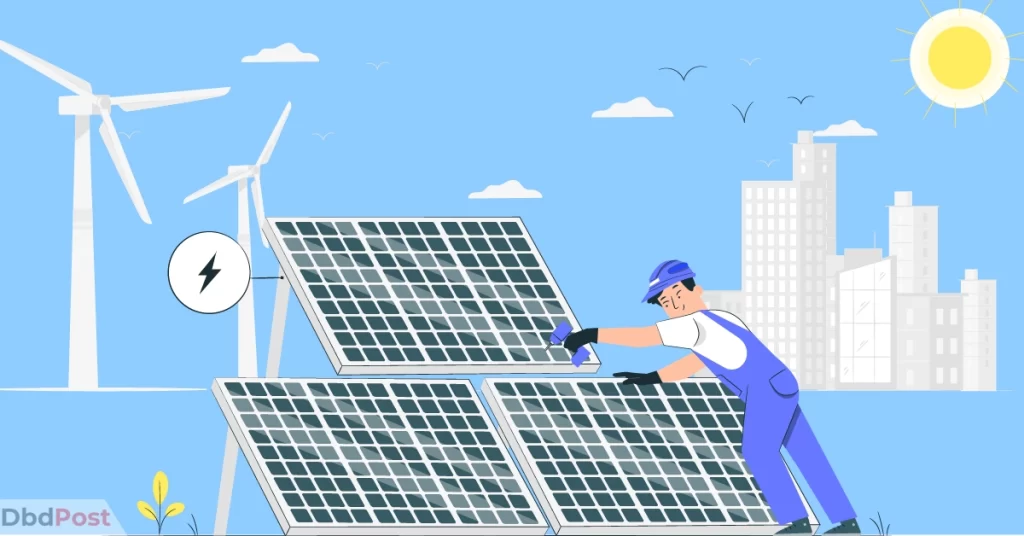

![How Much Does it Cost to Wrap a Car in [year]? how much does it cost to wrap a car-feature image](https://dbdpost.com/wp-content/uploads/2021/09/how-much-does-it-cost-to-wrap-a-car-feature-image-150x150.jpg)
![How to Delete Shein Account? ([year] Edition) feature image-how to delete shein account](https://dbdpost.com/wp-content/uploads/2021/10/feature-image-how-to-delete-shein-account-150x150.png)
